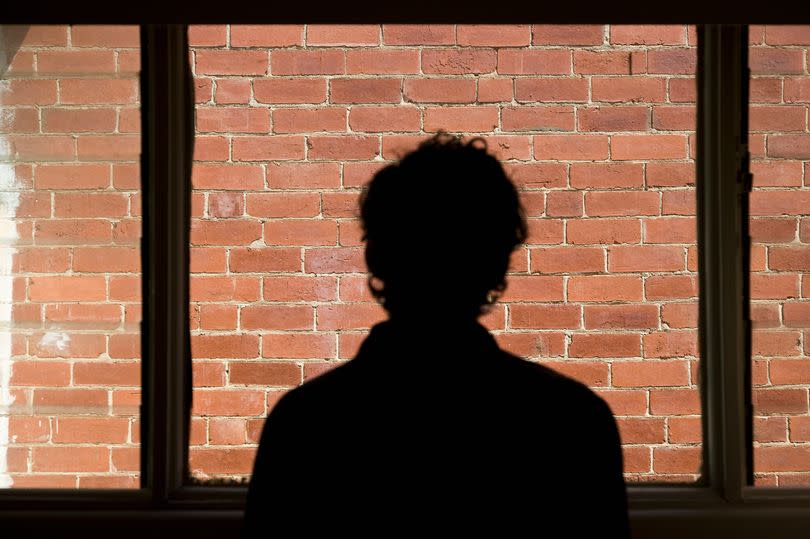British boys most likely to be trafficked into modern slavery in 'buffet table' county lines threat

The staggering threat of county lines was laid bare with a recent report detailing how British boys are now the most likely demographic to be trafficked into modern slavery.
The Centre for Social Justice report - Criminal exploitation: modern slavery by another name - found that typical understandings of modern slavery often involve foreign nationals exploited in prostitution or forced to work in inhumane conditions. But since 2019, two thirds of all potential victims in the UK have been British nationals - mostly teenagers and vulnerable adults who have groomed into committing crime for the benefit of others.
This accounts to around 12,641 people, with nearly 8,900 of them being British teenage boys. However, these are just potential victims referred to the National Referral Mechanism - a framework for identifying modern slavery - so the numbers of young people involved will be considerable higher. While the report makes clear the numbers regard all types of criminal exploitation, a large amount of the victims will have been trafficked into a county lines model.
READ MORE: Darren Gee breaks silence on where Daniel Gee might be hiding
County lines is the name given to drug dealing where organised crime groups (OCGs) use phone lines to move and supply drugs, usually from cities into smaller towns and rural areas. The gangs exploit vulnerable people - mostly children and vulnerable adults with mental health or addiction issues - to distribute and smuggle the drugs.
The ECHO has previously documented how Merseyside's criminal gangs treat the UK like "one big buffet table" with drugs, weapons and cash moving between cities every day. Previous statistics released by the government showed the lucrative nature of the illicit business, with each line turning estimated profits of £800,000. In 2019, the National Crime Agency (NCA) estimated there were over 1,000 lines operating in the UK, making it a near £1bn industry.
Previously speaking to the ECHO, a British Transport Police inspector said the force had seen children from Merseyside sent as far around the UK as Aberdeen in Scotland and Truro in Cornwall. He said: "There are no boundaries to this - the UK is like one big buffet table for them. They will make the most of their contacts across the UK to exploit the most vulnerable."
Merseyside is the second biggest exporter of county lines drug operations - second only to the Metropolitan area of London - and its gangs have influence in every corner of the UK. One officer, who previously led Merseyside's response to tackling the county line threat, said: "There’s not a single police force across England, Scotland, Wales, Isle of Man, Jersey, that has not been touched by Merseyside county lines.
"Since our inception we have closed down over 2,100 lines. They go everywhere. Our gangs are clever, they have a successful model and a footprint in many rural and coastal towns across the UK. It’s important we work with forces across the UK to identify them and put them before the courts."
The Centre for Social Justice report found deprivation, substance misuse, mental health issues and age were among the significant factors that put people at risk of criminal exploitation. The report found: "One in four people in the most deprived parliamentary constituencies had seen signs of criminal exploitation in their community compared to 15 per cent in the least deprived communities.
"A quarter of teachers in schools with the most deprived students had encountered suspected criminal exploitation compared to 12 per cent of teachers at the most affluent schools." According to government statistics, Liverpool Walton is the most deprived constituency in the country. Four other Merseyside constituencies also feature in the top 15 most deprived, according to 2019 figures.
Vulnerable children as young as eight have been tasked with doing drug gangs' dirty work under the county lines model. The ECHO has heard: "Some of them might be getting cuckooed where the gangs come and take over the address for illegal activity, generally to supply drugs or store drugs and weapons.
"These children are also dealing on the streets. The important thing to note is the people controlling the lines don't carry the risk. They're not dealing on the street, those people being exploited are the ones being subjected to violence and risk of injury."
The report made a number of recommendations to the government, including amending the Modern Slavery Act 2015 to make it work better for criminal exploitation.
Don't miss the biggest and breaking stories by signing up to the Echo Daily newsletter here.

 Yahoo News
Yahoo News 
